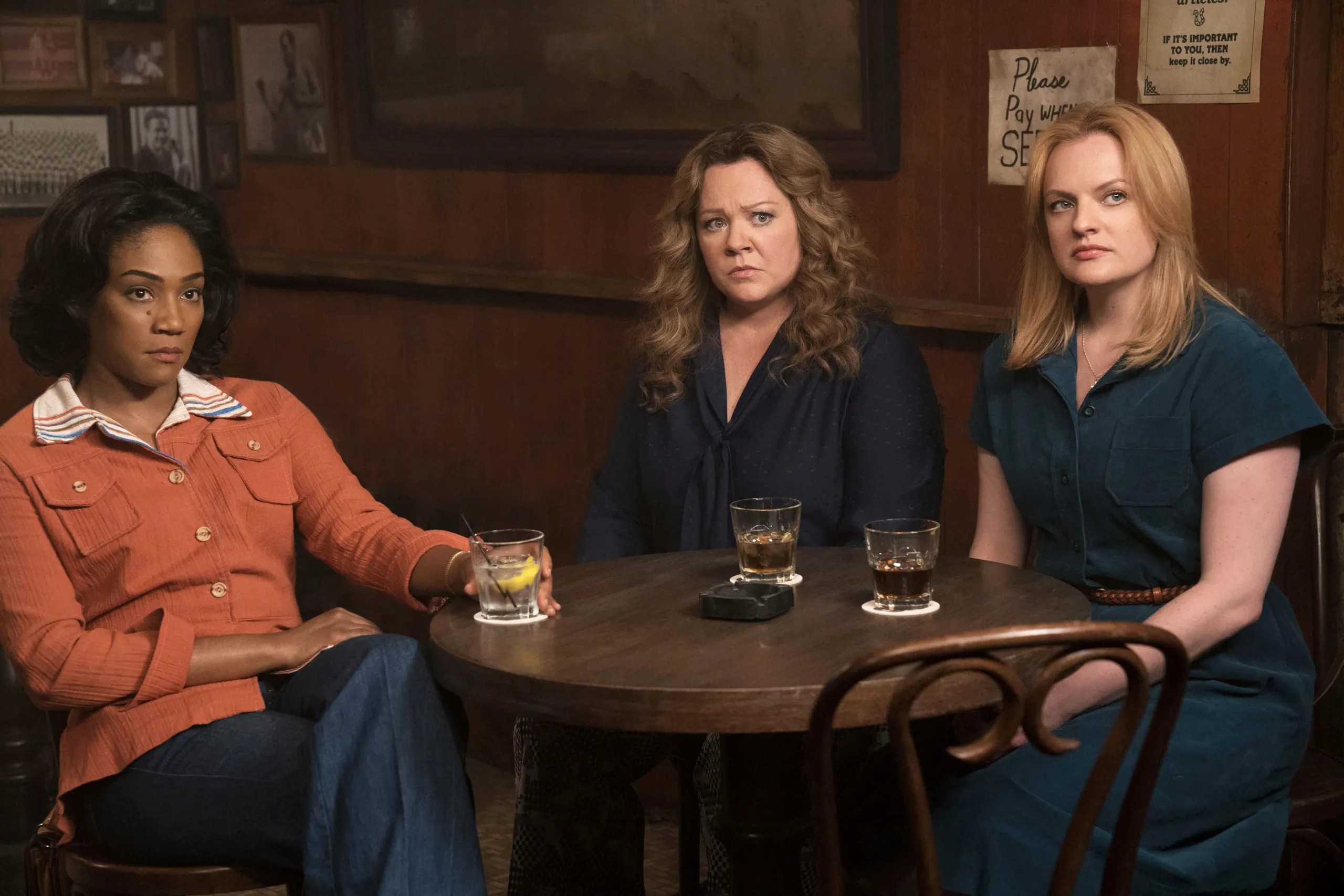After their husbands go to jail, mob wives Kath, Raven, and Angie decide, for their own survival, to take up their husbands’ duties. And they are successful at it, but the violence escalates and it’s a mob story so of course it will end badly. All these stories do.

The Kitchen, written by Ollie Masters, with art by Ming Doyle and colors by Jordie Bellaire, definitely feels like it was another case of being conceived as a screenplay first and then adapted into a comic to sell the film rights. Except worse than that, it feels like the outline of a screenplay. Characters are so thin and virtually indistinguishable from each other in terms of personality. There seems to be only a surface-level understanding of the mob scene of ’70s New York City. I sincerely doubt there was much research done here.
Doyle’s art is good, though, and it’s worth flipping through for that. While the panel layouts are a bit stiff, she has a feel for the fashion and aesthetics of the era. Bellaire’s colors are also great and contribute a lot to a mood that doesn’t fully exist in the text of the story.
I kept waiting for something unexpected to happen in The Kitchen and it never did. Sometimes that can be satisfying — it’s a mob story so there should be some of those tropes — but the story is so sparse that it doesn’t even work on that level. I didn’t care about anything that was happening because nothing really happened. Even much of the graphic violence fails to deliver the impact that the creators seem to think it does.
So while The Kitchen (2019, directed by Andrea Berloff) is not a particularly good movie, in comparison to its source material, it feels like a masterpiece.
Berloff, who also wrote the screenplay, takes the comic and brings in more humanity and character. Kathy (Melissa McCarthy) is still a wife and mother but she’s also compassionate and caring. Both Raven and Angie are reimagined and renamed and only bear a surface resemblance to their comic counterparts. Elisabeth Moss is the meek Claire, who after a lifetime of being abused, finds comfort in committing her own acts of violence. Ruby, played by Tiffany Haddish, faces racism as the Black wife of an Irish mobster. Each of these women feels like they have something to prove and reasons to prove it.
Margo Martindale is extraordinary as Helen, the matriarch of this mob family who is not thrilled to see three younger women challenge her for power. She’s an invention for the movie. Likewise, Gabriel, played by Domhall Gleeson, is another reimagining of a character from the comic and better for it. He brings a broken, sensitive energy to someone who is clearly an amoral psychopath. His relationship with Claire is both disturbing and sweet — they’re two people who understand each other in a way no one else in their world can, even if that world is full of violence.
So yes, if you watch this movie, watch it for the cast.
Berloff rearranges and expands on some plot points, but there still isn’t that much there. It mostly hits the beats you think it will. Things go well until they go badly. There is tragedy. There is betrayal. This isn’t reinventing anything there, but it remains watchable because the actors all commit.
The production is a bit too clean for what’s supposed to be Hell’s Kitchen in the 1970s. Everything looks a little too shiny and pretty. I do think there’s enough attention paid to period details, though — the costuming is great, after all, and the soundtrack works well enough.
I am glad the era of rewriting a screen pitch into a comic seems to be mostly a thing of the past (seriously — this was advice that was floating around there for a while). While often the movie seems better than the comic, it doesn’t do either comics or movies justice. I think The Kitchen is, sadly, a great example of that.

